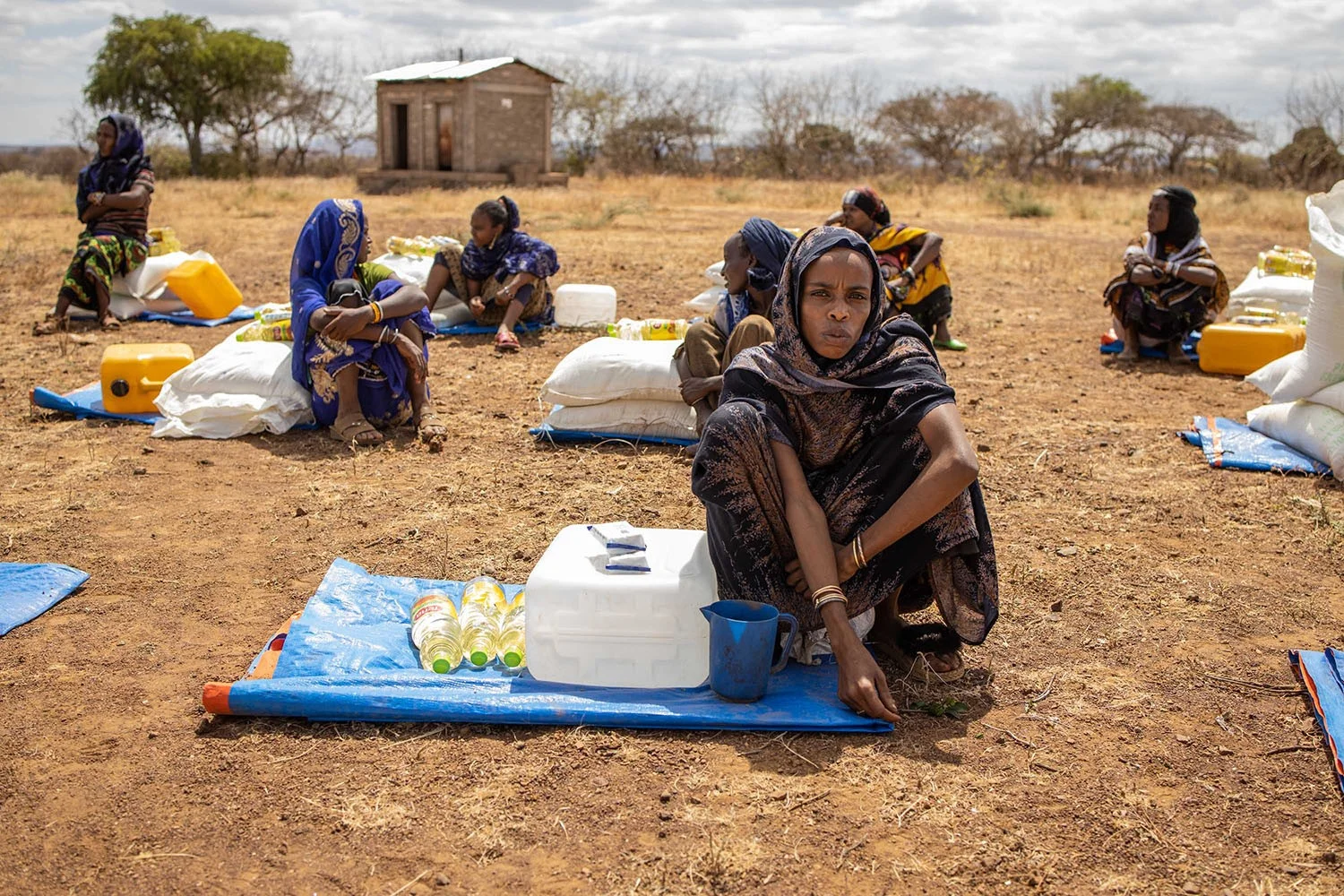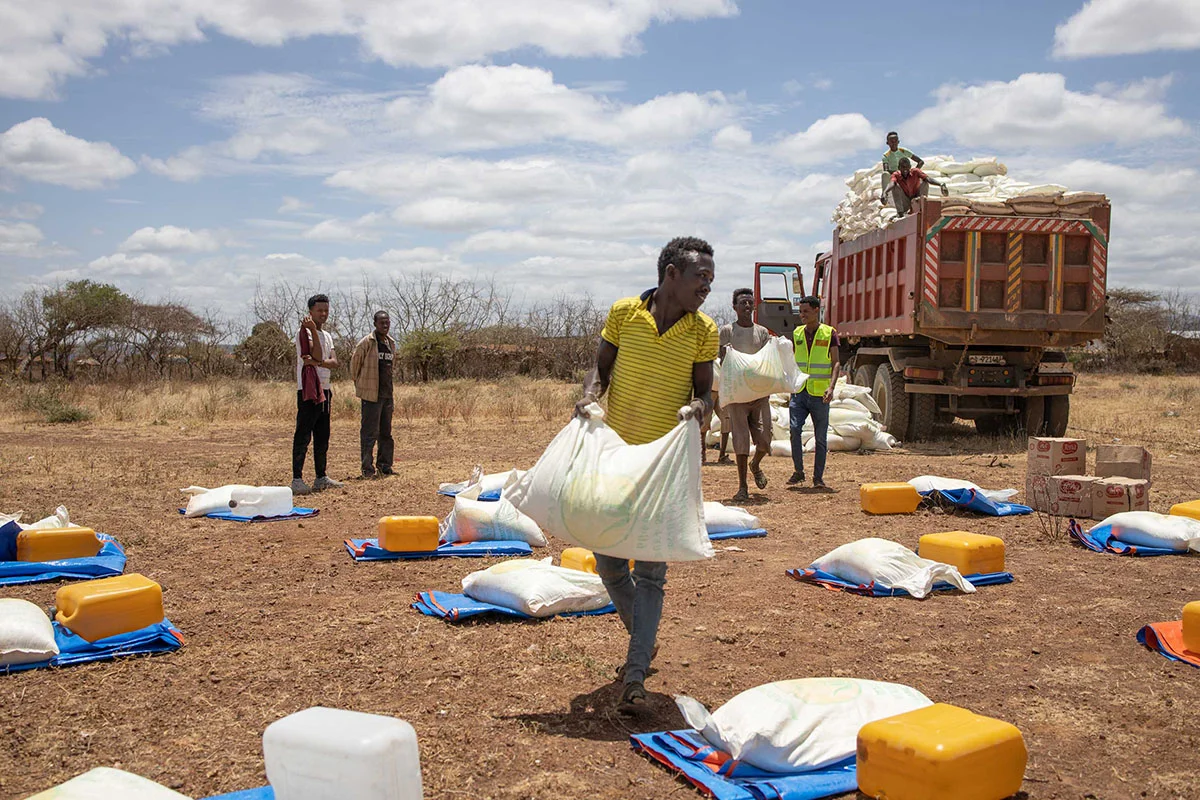Emergency aid in the event of a disaster
The vegetation has withered, the earth is bare. Gusts stir up the red dust, tearing at the round dwellings that people have tied together from branches, rags and plastic sheeting. Many men are still out in the vastness of the savannah, looking for grass and water for the last surviving animals.
The Borena herders have been hit hard by the worst drought in forty years in the Horn of Africa: most of the families' goats, cows and camels have starved and died of thirst. People have survived so far because they share what little they have left, as the tradition of nomadic peoples would have it.
Climate change is increasing dry seasons in East Africa. Nomadic pastoralist families are particularly affected. Their cattle are starving and dying of thirst. That's why people also suffer. The health and development of young children in particular are at risk.
Our cooperation with local partners is well-established and coordination takes place quickly, which is why we were the first Swiss aid organization to be able to bring emergency aid to the disaster area at short notice until the Ethiopian government, with the help of large international donors, took over supplying the population from 2023.


